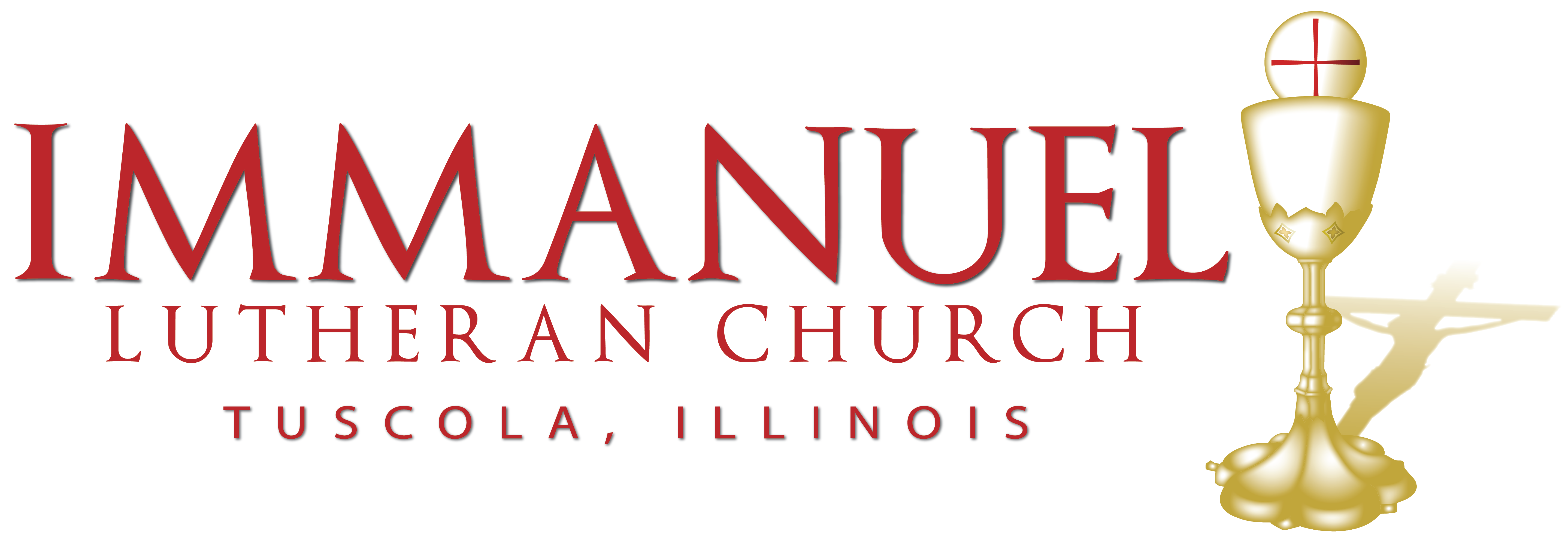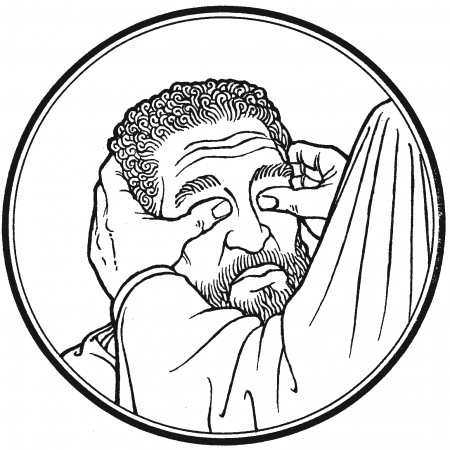Quinquagesima
Luke 18:31–43
+ IN NOMINE IESU +
The eyes are organs of reception. They’re passive instruments. They simply receive the images they behold. But they are also notoriously unreliable. We rely upon them for the majority of our daily tasks, but they often play tricks on us. They deceive us by illusions. They are unreliable for solely distinguishing between what is true and what is false.
Eve was deceived by her eyes. She saw that the fruit was to be desired and that it looked good for food. Then when they took it and ate it, they saw that they were naked and were ashamed. By the serpent’s deception, the eyes of Adam and Eve were opened to behold the darkness of sin and death. They saw but did not see.
The disciples, too, saw but they did not see. Jesus told them what was about to happen to the Son of Man according to the Prophets. He was to be handed over to the Gentiles, mocked and shamefully treated and spit upon. He was to be flogged and killed but on the third day rise from the dead. But they understood none of these things. They saw but they did not see, for they saw only sin and death.
Even after the resurrection of our Lord, the two disciples on the way to Emmaus saw but did not see. They only saw when their eyes were opened by Jesus when He opened to them Scriptures from the Old Testament on how they all prophesied of Him and what He came to do: that the Christ must suffer and die and on the third day be raised from the dead. Their eyes were opened and they recognized Him by His Word in the breaking of bread.
They eyes are receptive but they often perceive things falsely. They perceive what is evil for what is good. They confuse death with life, and sin for righteousness. That is because they are the organs of desire. They lead us into false belief and other great shame and vice. They can’t be solely trusted for what is true.
Is this not so often the case in our own lives? Do we not often do what seems right in our own eyes without consultation with God’s will in His Word? Do we not often think that He will understand our circumstances and . . . (Talk more about our sin of unbelief).
And so by a twist of irony the only one who saw could not see for he was blind. He saw because he believed. And he believed because faith comes from hearing and hearing from the Word of Christ. His ears receive the message of who is passing by, Jesus of Nazareth. And yet when this man cries out for mercy, he does not address our Lord as Jesus of Nazareth, but as Jesus, Son of David. He addresses Him with His messianic title, that the Messiah, the Christ would be the Son of David and His Lord.
The blind man believed, and Jesus said that his faith has saved him. Our translation says that his faith made him well. This is true, but the word more precisely indicates salvation. The blind man’s faith in Jesus as the Son of Man, the Christ, the Messiah, the Son of David who would give His life as an atoning sacrifice for the world’s sin and would be raised for our justification is what saved Him. And that faith, given through the Word of Christ by way of the man’s ears, apprehended the promise and blessing of God for the forgiveness of sins and eternal life.
And so while Adam and Eve saw that the fruit was to be desired and that it would be good for food, when they took of it and ate, they saw that they were naked and were ashamed. But faith is the substance of things not seen, the evidence of that which is hoped for. Therefore, the blind man desired to he could not yet see, the Kingdom of God, and especially to see the one who provides sight of the blind and sacrificial skins to cover the nakedness of sin. While the serpent’s deception opened the eyes of Adam and Eve to see the darkness of sin and death. The proclamation, the Word and promise, of Jesus, the Son of David, the Truth incarnate, opened the eyes of the blind man darkened by sin and death to behold the light of salvation.
You, too, have not seen and yet you see. You believe because of the Word and promise of God. You believe not by what you have seen but by what you have heard. And blessed are you who have believed and not seen. For faith is the substance of things not seen, the evidence of things hoped for. And by this faith, you are saved. Your sins are forgiven for Christ’s sake. For faith apprehends and takes hold of the promises of God and applies it specifically. You are saved not because you have faith. You are saved because you have faith in Jesus Christ, the Son of David, who was crucified for your transgressions and raised for your justification.
And now your eyes are opened to see aright. Not with your eyes but with your ears, to recognize Him who was crucified and raised now present in His very body and blood in the breaking of bread.
Let us then move in the coming Lenten season to hear from the prophets daily and seek therein the suffering and dying of Christ. Let us also, first of all, as before a mirror, see the horror of our sins and God’s wrath over them. And then let us, at the same time, with eyes opened by His Word, to behold the complete reconciliation of ours ins and the riches of divine love and grace. And though we are all by nature completely blind, let us with the blind man call upon Christ in faith to open our eyes and so experience the power of those blessed words, “Recover your sight, your faith has saved you.” Amen.



2 Comments
Here it is, DeAnn! 🙂
Thank you. 🙂